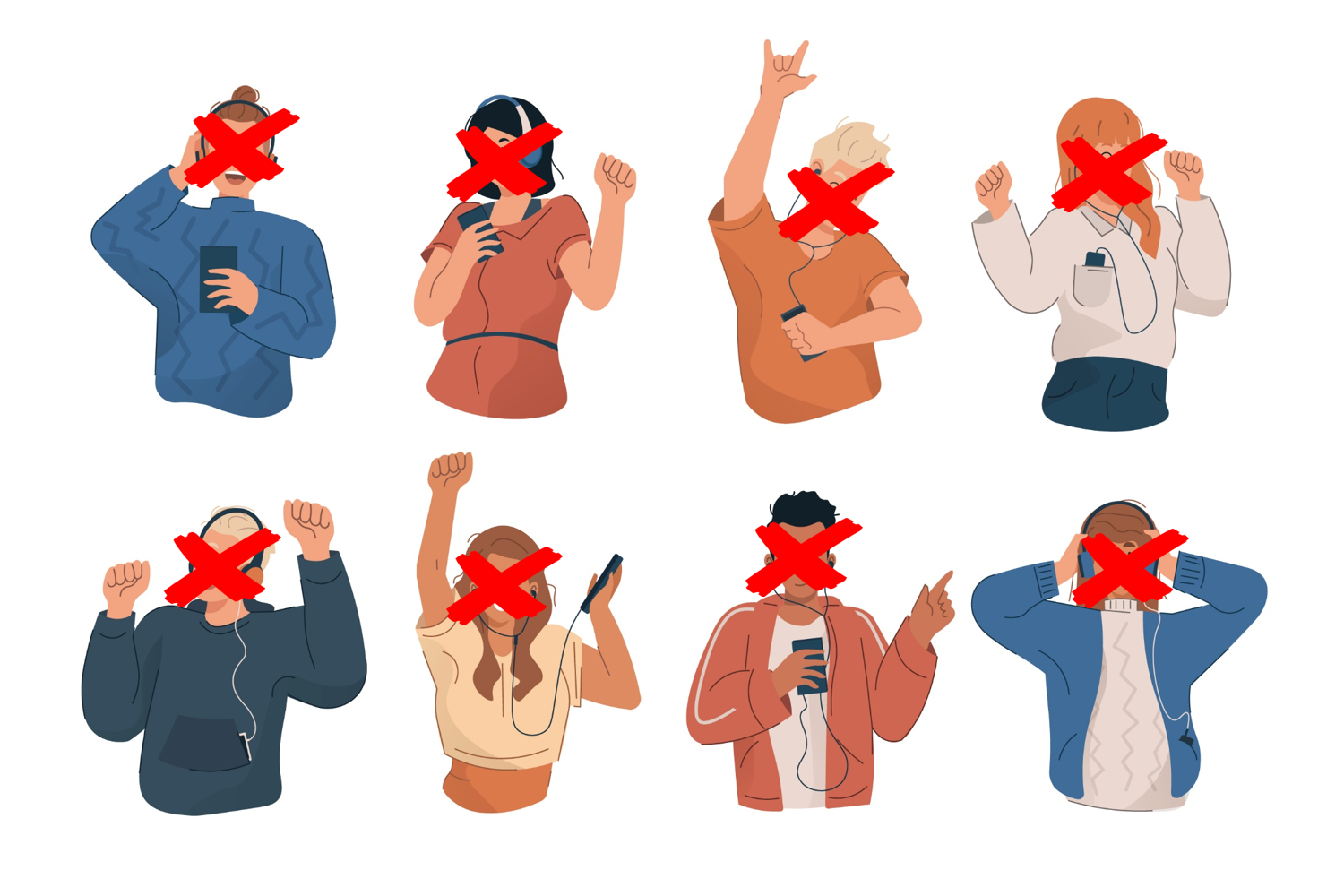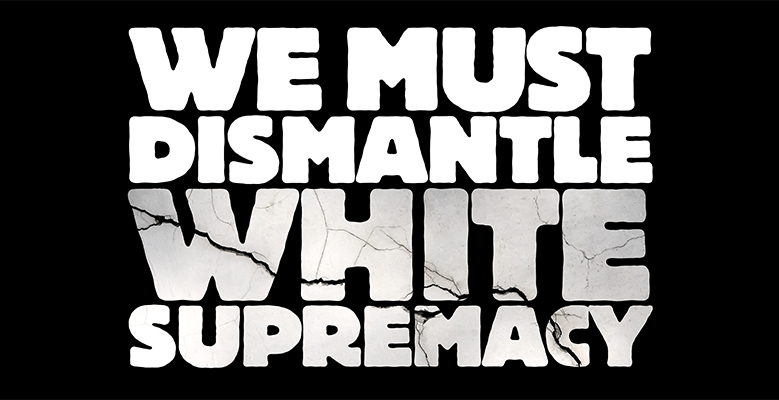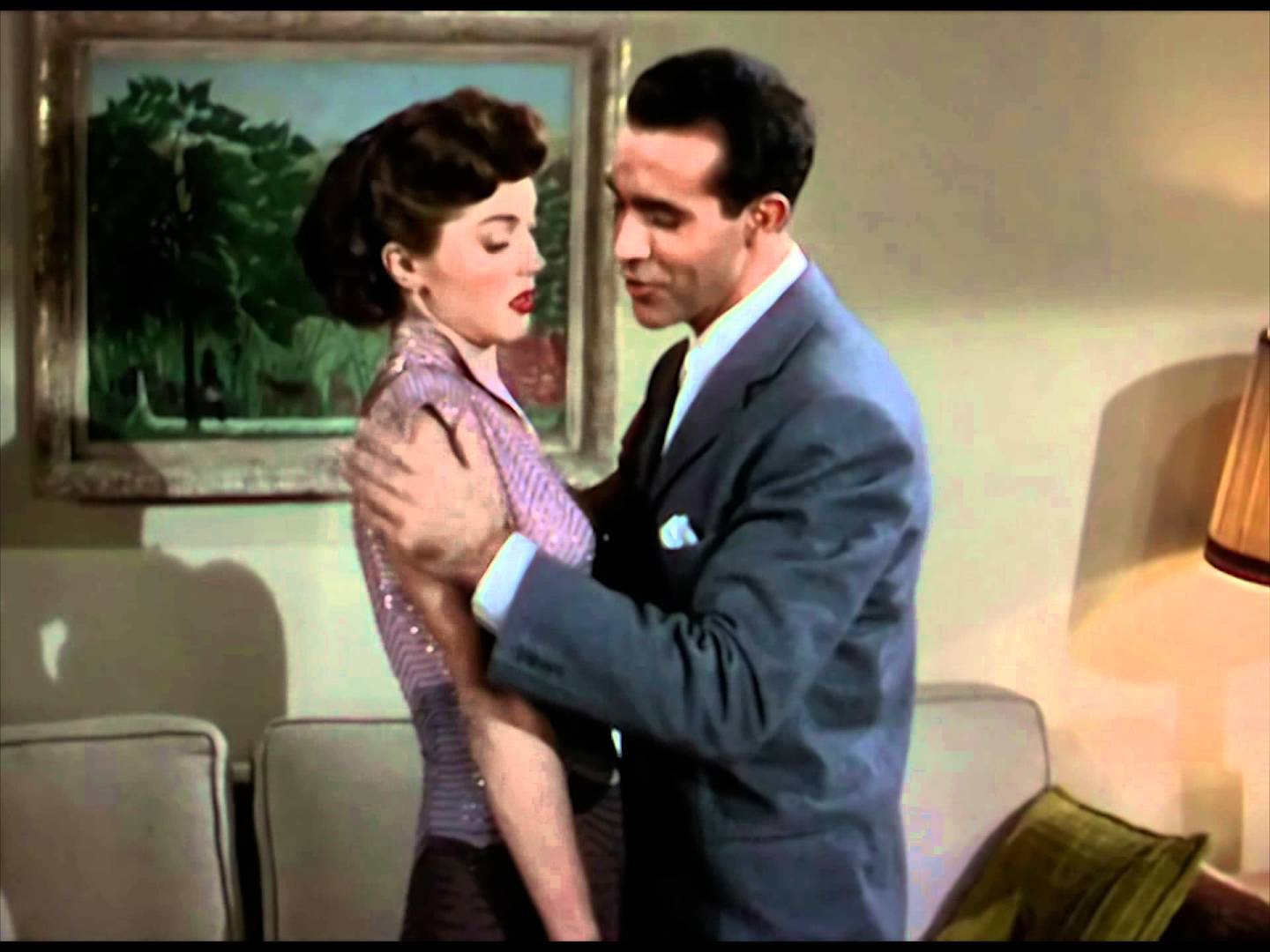
This has been an amazing few weeks – the trifecta of COVID-19, an economic meltdown, and racial tensions is being discussed at all levels in all communities, throughout company conference rooms, and at kitchen tables all over America.
The radio broadcasting industry is not exempt from these conversations. Some companies and their radio stations are addressing these issues on their air, and in their policies. Others, however, have remained silent.
Just recently on Twitter, programmer turned podcaster, John Ford, made this suggestion:

On his Overnight Underground Podcast, John has been especially vocal about the “cancel culture,” and that jagged line that runs between not offending on the one hand, and cultural censorship on the other.
I am not going to use this platform to admonish any corporate execs for their stances, actions, or lack of response – they own their companies, and are responsible to their investors, their shareholders, and yes, their audiences and the communities they serve.
Last week, I was asked by a national publication to respond to an upcoming article about how rock radio is responding to the #BLM movement. I’m not sure whether I want my voice included in the story, partially due to not being exactly sure about how I personally feel, and what I would do if I were programming a rock-formatted radio station at this amazing point in time.
I will let you know how I decide because while I value being asked, I also am well aware of the sensitivities of this issue, and how difficult it is for writers to balance their coverage, as well as multiple sources they interview. This is a complex, thorny issue that simply cannot be summed up in a “sound bite” or two.
Add to that, this blog post provides a pretty nice pulpit from which I can opine about anything I believe is relevant to the worlds of media, technology, and specifically, radio and music. And as some of you know too well, I’m not shy about using WordPress “real estate” to discuss everything from Classic Rock to connected cars. Many of my posts are routinely north of 1,000 words. So, apologies, but sometimes things are more complicated than what can be covered in a tweet or a magazine story.
And that’s why this post has been written – not to get my own views out there, but to use this blog as a place to have these conversations, whether we want to have them or not.
 It’s relatively easy and now very obvious for Quaker Oats to put Aunt Jemima out to pasture. The same is finally happening with other “racial mascots,” like Uncle Ben, Mrs. Butterworth, and the Cream of Wheat chef. While these brands are getting some props for taking these steps, many on social media are asking “What took so long?”
It’s relatively easy and now very obvious for Quaker Oats to put Aunt Jemima out to pasture. The same is finally happening with other “racial mascots,” like Uncle Ben, Mrs. Butterworth, and the Cream of Wheat chef. While these brands are getting some props for taking these steps, many on social media are asking “What took so long?”
As sports team mascots and symbols are now under scrutiny – the University of Virginia recently modified its team logo because of slavery references – it can’t be long before those conversations revolving around the Cleveland Indians, the Washington Redskins, and others resurface. And we all heard the apology from NFL Commissioner Roger Goodell a few weeks ago, that was was a bold step, but did not name names, specifically Colin Kaepernick.
In recent weeks, the deaths of George Floyd, Ahmaud Arbery, Breonna Taylor, and now Rayshard Brooks in Atlanta have forced companies and business leaders to confront their content, their marketing, their staffing, their employee policies, and their conversations.
On the one hand, there are brands like Ben & Jerry’s, that has always been outspoken about social issues. You can see their unambiguous statement (below right), that goes beyond racism, and speaks to even deeper-rooted problems in our society.
On the other, there are many more companies that have avoided and evaded these issues altogether.
Now, everyone’s hand is being forced. Including my own. At both Jacobs Media and jacapps, we are having these conversations – about our policies, our practices, and the ways in which we acknowledge issues of race, gender, and fairness. A couple weeks ago, I turned the lens inward and discussed the things our companies will be doing moving forward in a blog post titled “What’s Going On?”
And in the days since, there have been many revelations about how celebrities have behaved in the past. Through the lens of today, Virginia Governor Ralph Northam, Justin Trudeau, and Jimmy Fallon have all issued sincere apologies. And Ted Danson’s unfortunate decision to participate in a blackface parody while he and Whoopi Goldberg were an item has made a “comeback.”
Even the mighty Howard Stern has had to address it.
More than 25 years ago, he appeared in his own pay-per-view TV special in blackface (lampooning Danson). And like so many others, he was called out to respond. Earlier this month, here’s how he explained his behavior on his satellite radio show in a CNN story:
“The sh*t I did was f#%&ing crazy, I’ll be the first to admit. I won’t go back and watch those old shows; it’s like, ‘Who is that guy?’ But that was my schtick, that’s what I did and I own it. I don’t think I got embraced by Nazi groups and hate groups. They seemed to think I was against them, too. Everybody had a bone to pick with me.”
On the same show, he looked at the mirror and admits:
 “I cringe when I look at myself 30 or 40 years ago. And that (TV bit) was 27 years ago. I can’t stand it. Am I a bad guy? I don’t think so.”
“I cringe when I look at myself 30 or 40 years ago. And that (TV bit) was 27 years ago. I can’t stand it. Am I a bad guy? I don’t think so.”
But through the filter of today’s sensibilities, a lot of “shock jock” radio doesn’t hold up especially well.
So, how do today’s radio shows – especially those that are humor-based put their past bits and even benchmarks in perspective, while moving forward with content that works in today’s environment.
I vividly remember the many conversations that occurred shortly after the FCC’s crackdown on radio shows – in particular – in the wake of the “Wardrobe Malfunction” during that infamous halftime show at 2004’s Super Bowl featuring pop stars Janet Jackson and Justin Timberlake.
Every radio company, big and small, had sit-downs with their talent, examining show content in light of an energized commission bent on meting out hefty fines, and even threatening licenses.
Those conversations resulted in shows then – and now – reassessing their sexually-laced humor. Many took the extra step of reviewing years of archive shows (the ones that have ended up as “Best of’s” and/or available on-demand) to weed out content that no longer seemed funny or appropriate.
That same exercise is something today’s irreverent personality shows might consider dusting off again. It just might end up being a healthy process, sparking conversations among programmers, talent, management, and even the inclusion of community leaders for feedback.
And let’s not leave radio talk show hosts out of the conversation, like Rush Limbaugh. Stern’s comeuppance decimates the “that’s just Rush being Rush” argument when insensitive bits like “Barack The Magic Negro” are scrutinized through the lens of today – or even when he aired in back in 2008.
Then there’s the music conversation. More than a year ago, I got the ball rolling here with a post called “Radio’s Dilemma: A Man And His Art.” In it, we addressed the “cancel culture” (now we have a name for it) with everyone from Bill Cosby to Michael Jackson. I referenced a friendly debate I ended up in among public radio classical music programmers over whether known anti-Semite composer Richard Wagner‘s music should no longer have a place on the airwaves due to his bigoted beliefs.
Today, uncomfortable conversations about songs – their titles and in some cases, their messages – are creeping back into radio circles. As John Ford’s tweet asks, should “Brown Sugar,” “Black Betty,” “Walk On The Wild Side” and others that have racial, sexist, and LGBTQ overtones be on today’s station playlists? And as I asked one year ago, what becomes of artists like Ted Nugent and Kid Rock, both of whom have not hidden their views on these powder keg topics.
Again, I turn to a little history – the days and weeks after 9/11, to be exact. At that time, the thinking was that certain songs might make listeners uncomfortable or simply sound tone deaf after the Twin Towers were destroyed on that fateful day. That included seemingly innocuous tunes like “Jet Airliner” and “Live And Let Die” that made a leaked Clear Channel list of more than 160 songs.
Those songs didn’t remain banned for too long. But during the sensitive period that followed the worst attack on American soil in history, many programmers were being extra cautious and sensitive to their audiences’ feelings.
And so, that begs the question if a similar process shouldn’t occur today as PDs consider lyrical content in this enlightened environment.  And like the 9/11 example, the decisions made today may not be etched in granite. Back in 2018, remember the controversy around “Baby, It’s Cold Outside?” The song was dropped by many stations that focused on holiday music each year.
And like the 9/11 example, the decisions made today may not be etched in granite. Back in 2018, remember the controversy around “Baby, It’s Cold Outside?” The song was dropped by many stations that focused on holiday music each year.
But a CBC News story last November indicated programmers brought the classic back, including Bell Media stations and the CBC itself. National Canadian network spokeswoman, Teaghan Hawke, explained the about-face this way:
“Song lyrics are always open to interpretation and we recognize there are differing opinions pertaining to the lyrics…Listeners have the option to skip past the song if they fall into the camp that thinks the lyrics are inappropriate.”
Is that song no longer sexist – or even predatory? Does the passage of time matter? Are listeners smart enough to realize the lyrics were written in a very different era? If not, will they simply change stations when it airs?
And that bring us back to today’s controversy. The opinions of station owners, programmers, and perhaps even consultants deserve consideration. But so do those held by the audience. Our company has taken the opportunity during the COVID-19 pandemic to query radio listeners about many issues that transcend commercial load, preferred contest prizes, and other meat and potatoes radio issues via online surveys and even Zoom focus groups. A station’s listening audience – the people being served by radio – have the right to be heard, realizing their tastes and tolerances may differ greatly from format to format and brand to brand.
 It might also be time to fire up some Zoom meetings on the topic among station staff and management, as well as with the addition of community leaders. How are decisions being made by the team? Who gets a seat at the table in the room where it happens?
It might also be time to fire up some Zoom meetings on the topic among station staff and management, as well as with the addition of community leaders. How are decisions being made by the team? Who gets a seat at the table in the room where it happens?
And beyond what a station airs, what other steps can be made to diversify an industry that like many others, could benefit from a reconsideration of training, recruiting, and hiring practices.
Not every brand or company will come up with artful and thoughtful solutions to these existential problems that have been festering for decades or more. But to not attempt to use this moment as the chance to open dialogue – especially for an aging medium – is too big an opportunity to pass up.
I can’t advise any of you about what to do, short of this:
Become a better listener. Get out of your political bubble and cultural bubble, whether it’s black, white, red or blue.
And listen to the opinions and feelings of others.
I was a teen living in Detroit when the riots broke out during that fateful summer of 1967. As I’ve watched the scenes from around the country these past few nights, I can’t help but flash back on what happened here more than a half century ago. To say it has taken the Motor City decades to recover is an understatement. For Blacks living in Detroit or Des Moines or Delaware or anywhere else in the U.S., it is sad to admit we’ve made so little progress in race relations and our understanding of those around us.
I remember that fall at Cooley High in a civics class, our White teacher did something very interesting and progressive. He created a class roster comprised of an equal number of students – Black and White. We spent an entire semester listening to each other. That class opened my eyes to feelings and injustices I had never considered, especially growing up as a privileged middle class White kid living in Northwest Detroit.
I had never considered the white hats and black hats on TV westerns as anything but good guys and bad guys. Or the “White Tornado” or the “White Knight” in television ads as anything other than marketing campaigns. I learned a lot in that class about how little I knew about what others were thinking and feeling, especially during divisive times.
Whether you’re on a path to reassess everything or are simply in a “business as usual” mode, I get it. But if you do nothing else during this societal junction in America, consider the L-word:
Listen.
- What To Do If Your Radio Station Goes Through A Midlife Crisis - April 25, 2025
- A 2020 Lesson?It Could All Be Gone In A Flash - April 24, 2025
- How AI Can Give Radio Personalities More…PERSONALITY - April 23, 2025




I’m all ears.
Thanks for the caring, thoughtful post.
Thanks for reading it, JC.
Thank you for the thoughtful post, Fred. Lots to think about. I don’t have much advice either, but I think in analogies. The manufacturer’s decision to retire Aunt Jemima, for instance, is their prerogative of course, and we’ll assume they sought cultural input as part of their decision process. Fair enough. But did they–could they–ask everyone who has a box of that pancake mix on the shelf to please discard it? Once a product (food, song) is out there, bought by someone, you really can’t control it.
When it comes to pop culture, similarly, Warner Bros today might no longer issue/reissue Bill Cosby’s decades’ worth of comedy recordings, and playing them on the radio is probably a pretty bad idea now, but how many of us have one or two of those LPs tucked away somewhere? Can we even listen to them? I remember they were very funny at the time. I wonder whether I’d still think so.
As to music, I’ve heard “Brown Sugar” much more recently than I’ve heard Cosby, and who can deny it’s a great track? What Mick Jagger does today is up to him, but he can’t cancel the band’s past, and would we want him to? I can enjoy the track the same way I can enjoy watching an old movie, knowing and being grateful that its cigarettes and sexisms are an artifact of its time and now we’re doing (somewhat) better.
So I second your advice: Listen–to the material and to your community, and remember that your license depends on dedication to public service. I add only that listening isn’t a one-and-done action. Repeat at intervals and when necessary. Good sailors know the wind can change.
Well-crafted thoughts, as always, John. Thanks for joining the conversation.
There are indeed more icons worth assessing, and creative ways for media to address them. Dan Lebatard (ESPN’s The Dan Lebatard Show) regularly refers to “the Washington Racial Slurs” football team. It’s his understated but firm way of bringing that out in every conversation about the team, without having the full-on argument each time. I love that. When Dan Snyder is finally forced to reckon with that blatantly racist mascot, I’ll get back to you about the progress we’ve made.
It will happen, Tim. But the fact it’s taken this long makes the Quaker Oats people seem downright progressive. We cannot change the past, but we can forge a more thoughtful and human future. Thanks for chiming in.
On the Aunt Jemima front, this is interesting.It seems that the family of the woman who was the model for the picture and the pitchman for the brand for three decades, don’t want the brand change or her picture removed.
https://www.wifr.com/content/news/Family-of-woman-who-portrayed-Aunt-Jemima-opposes-move-to-change-brand-571390451.html
You know, Howard Stern (and I say this in my best Sam Elliot voice from the movie “We were Soldiers) is a pussy. He made his nut offending everything and everyone, it was his damn brand. He took every page from the Lenny Bruce playbook and threw them at the mic. Now he’s woke and want’s forgiveness for his ‘sins’ ? A kinder/gentler Howard? Lukewarm and only worthy to spue. Howard has evolved into a woke Larry King who swears.
John, your observations about both the syrup and the shock jock are priceless. Thanks for the stimulus to blog about this increasingly crazy topic, and I hope you found the conversation substantive.
Mankind isn’t pretty today and it doesn’t get any better the farther back you look. That is why it is tough to judge someone like Winston Churchill through today’s eyes.
Songs are a little different though because, as we know, some people are obsessed with the meanings (Dylan fanatics anyone?) but most listeners just want something with a good beat that is easy to dance to.
There are a lot of people that think REM’s “The One I Love” and U2’s “With or Without You” are love songs. Hey – whatever gets you through the night is all right with me.
Because of that, I don’t think there will be as big an outcry about music and other artistic ventures (i.e. Theatre, Books, Dance, etc.).
Songs and other art are often written about characters that aren’t the writer/author anyway. As far as I know, Johnny Cash didn’t shoot a man in Reno just to watch him die.
I think Elvis Costello better not anticipate many more royalties for “Oliver’s Army” though. There will be some limits that I believe will happen organically rather than by decree.
I do applaud Stern for evolving. No one says he has to be the same person he was 30 years ago and an entertainer has to be more cognizant of tastes and sensibilities than other professions. Even CC Sabathia evolved from a dominant fastball thrower to craftier hurler as he aged. Why can’t Stern?
Mike, wonderful feedback for a very complicated issue. Song meaning plays a role in this (I’ll add the Police’s “Every Breath You Take” to the list of misinterpreted love songs, or Springsteen’s “Born in the USA” as (not) a patriotic anthem).
And is the issue a song that tells a story or is that heart and character of the artist themselves. The Stones are a case in point, as might be the already mentioned Nugent, who might be most analogous to Wagner.
I also appreciate your comments about Stern and Sabathia. Perhaps with the exception of a Nolan Ryan (and Justin Verlander?), even fireballers turn to junk (or better put, finesse pitches) in the latter stages of their careers. The fact that Stern has evolved, and is a more introspective person at the point in his progression is impressive.
You can’t make this up – I once attended a City’s sesquicentennial (I won’t say which one to protect the guilty) that had a fireworks display synced to music.
Among the songs played were “Born in the USA” and Jackson Browne’s “For America”, which, as you noted, our not exactly flag wavers.
My friend and I were scratching our heads till the kicker came on – Simon and Garfunkel’s “My Little Town”. My friend turned to me and asked if we were being insulted. “Nothing but the dead and dying back in My Little Town”.
Someone picked the music based on titles with NO interest in the lyrics.
Or that person had a wicked sense of humor. Thanks for that story, Mike.
Not that this particular Beatles track sees airplay any longer–and hasn’t in years–but I think Beatles albums might be burned even faster than when Lennon made his infamous “Jesus” comment if this song were released in the metoo era…
Well, I’d rather see you dead, little girl
Than to be with another man
You’d better keep your head, little girl
Or I won’t know where I am
You’d better run for your life if you can, little girl
Hide your head in the sand, little girl
Catch you with another man
That’s the end, little girl
Well, you know that I’m a wicked guy
And I was born with a jealous mind
And I can’t spend my whole life tryin’
Just to make you toe the line
You’d better run for your life if you can, little girl
Hide your head in the sand, little girl
Catch you with another man
That’s the end, little girl
The times, they are-a-changing, and that’s (mostly) a good thing.
Dave, the examples are numerous and most fans got hooked on the music, not the lyrics. That’s for pointing out something under our noses all along.
There really is something to be said for “ignorance is bliss”–at least when you’re a kid and all you care about is how the music sounds. But alas, we grow up and times change and it’s important we do have these dialogues. One man’s “bliss” may be at the cost of another man’s “pain.”
We all need to be better listeners – to each other and the media we consume.
As corporations take a deep dive to see if there organizations have systemic racism. One place to look is the Cost Per Point for Urban and Spanish radio stations. Despite often being the top stations in markets such as LA or New York they are punished with lower CPP’s. This disproportionately hurts ethnic radio
And it always has, Angie. Anyone who has ever studied format “power ratios” has seen it. When I first got into radio, doing research for the sales people, it was explained to me like this: “That’s just the way it is.” Thanks for bringing this up, an important part of the conversation.